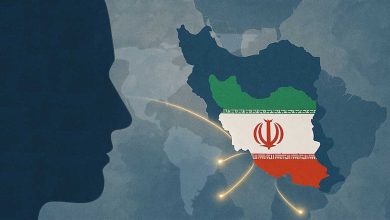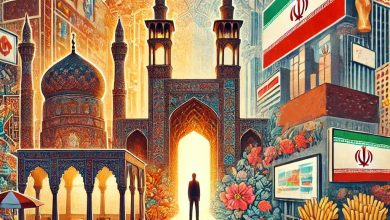
Today’s world is complex, unstable, and often governed by the logic of power and coercion. While international institutions like the United Nations, the Security Council, and the International Atomic Energy Agency (IAEA) were created to ensure global peace and security, in practice, they are largely dominated and influenced by major world powers, especially the United States. In such a world, countries that possess stronger deterrent capabilities enjoy greater security, decision-making independence, and bargaining power. One of the most significant deterrent tools in the modern era is nuclear weaponry.
As a major and influential country in West Asia, Iran is increasingly facing direct and indirect security threats. In this context, possessing a strong deterrent, including nuclear deterrence, is no longer a choice—it is a strategic necessity for survival and development.
In analyzing Iran’s nuclear policy, it is impossible to ignore the fact that the country has paid a heavy price for its nuclear program over more than two decades, without reaping tangible strategic benefits.
International sanctions—from UN Security Council resolutions to unilateral U.S. and European embargoes—have severely pressured Iran’s economy at various stages. These sanctions were not imposed for possessing nuclear weapons, but merely due to the “suspicion of seeking” them. Alongside economic pressure, Iran has faced direct and indirect security threats, from the assassination of nuclear scientists to cyberattacks and explicit threats by Israel and the U.S. Nevertheless, Iran has consistently adhered to a policy of not producing nuclear weapons. Meanwhile, a country like North Korea, with an actual nuclear arsenal, has avoided such overt threats and faces far fewer sanctions than Iran.
From a strategic rationality perspective, when a country bears the cost of developing nuclear capabilities without enjoying its deterrent and bargaining advantages, it suffers from strategic inefficiency. This weakens the country’s position both domestically and internationally. If Iran is to endure threats and sanctions, it is better to also obtain real deterrence. One must accept that in the international system, the rules of the game are not based on justice, but on power. If Iran aspires to remain an independent, stable, and influential actor in the region, it must understand the price of power and demand tangible returns for the costs already incurred. One such return is undoubtedly acquiring a level of nuclear deterrence capability.
Iran is located in one of the world’s most volatile regions. It shares borders with countries that either possess nuclear weapons or host foreign military bases. Israel possesses dozens of nuclear warheads and has never joined the Nuclear Non-Proliferation Treaty (NPT), nor accepted any IAEA oversight. Yet Western countries not only remain silent about it but also equip Israel with advanced weaponry. Pakistan, another neighbor, is a nuclear-armed state with a history of political instability, growing extremism, and potential threats along Iran’s eastern border. Saudi Arabia and the UAE have for years sought peaceful—and potentially military—nuclear capabilities. Saudi Arabia has repeatedly threatened that it would pursue nuclear weapons if Iran were to do so. These countries have also spent billions of dollars buying weapons from the U.S. and Europe. Meanwhile, Turkey is gradually expanding its nuclear infrastructure, and its president has repeatedly criticized the global system for denying nuclear weapons to some while allowing others. Turkey, as a NATO member, would receive full military support from the U.S. in a conflict. The U.S. itself, with dozens of military bases surrounding Iran and its direct presence in the region, represents a constant threat to Iran’s sovereignty and territorial integrity. In such an environment, relying solely on conventional military power and diplomacy, without a strong deterrent backing, cannot guarantee Iran’s national security.
The very nature of nuclear weapons is such that even the mere possibility of their existence (nuclear ambiguity) can deter aggression. The philosophy of nuclear deterrence is based on the premise that any military attack would incur intolerably high costs for the aggressor. This has been proven repeatedly in international relations. For example, despite border conflicts and deep-rooted enmity, India and Pakistan have never engaged in full-scale war since acquiring nuclear weapons. Why? Mutual deterrence. North Korea is a highly isolated and pressured state, yet with nuclear weapons, the U.S. and its allies have consistently abandoned military options and instead opted for negotiations. These examples show that possessing nuclear capability—even without actual use—can ensure a country’s security more sustainably.
Power in international relations is not just about military might—it means influence over decisions, the ability to impose one’s will, and to extract concessions. Nuclear-armed states are treated with greater respect at the negotiating table because adversaries know they are capable of dramatically altering the game if needed. The experience of the JCPOA showed that even a non-military nuclear program increased Iran’s diplomatic leverage. Now imagine if Iran possessed the capability to produce nuclear weapons—how much more diplomatic maneuverability it would gain.
The current international system is based on discrimination and monopoly. Nuclear-armed states have formed an exclusive club that not only prevents others from joining but also imposes economic, political, and military pressure on them to maintain their dominance.
Throughout nuclear negotiations—especially during the JCPOA process—Iran has constantly had to “prove its innocence.” It has repeatedly faced Western accusations and, to prove the peaceful nature of its program, made concessions, reduced enrichment levels, deactivated centrifuges, and even allowed unprecedented inspections by the IAEA. Yet the other side failed to fulfill its commitments and instead escalated pressure. If Iran were to acquire nuclear military capability, the equation would change—shifting from a defensive to an assertive and demanding posture.
Iran could also use “nuclear ambiguity” regarding its capabilities as a subtle form of leverage in negotiations. Such ambiguity, even without actual testing or official announcement, could influence the opponent’s calculations. In diplomacy, the perception of threat can be as impactful as the threat itself. If the opposing side believes that excessive pressure could push Iran toward irreversible options, it will be forced to adopt a more conciliatory approach.
In any negotiation, the more valuable your offer, the greater your reward. When Iran lacks nuclear weapons, the only thing it can put on the table is a “guarantee not to pursue them.” But if it has the capacity to build one, it can offer “a guarantee not to use or disclose” that capacity—something far more valuable. This compels the West to offer more substantial concessions in return.
Real diplomacy succeeds only when backed by power. For Iran, possessing nuclear weapons is not about using them, but about creating a security and diplomatic umbrella to safeguard national interests. In a world where the negotiating table is rigged in favor of the powerful, Iran must also possess real instruments of power to defend its interests. Only then can it speak to great powers not from a position of weakness, but from one of equality.
National security is a relative, fragile concept dependent on deterrent power. Iran resides in an environment full of actual and potential threats. Although Iran’s peaceful nuclear program is a legitimate right, under current conditions, this right must be elevated. Acquiring nuclear weapons—even just the capacity to produce them—appears essential not only to prevent war, but also to strengthen regional standing, ensure decision-making independence, and preserve national dignity. The future belongs to nations that can defend themselves—not those who cling to the promises of others.






